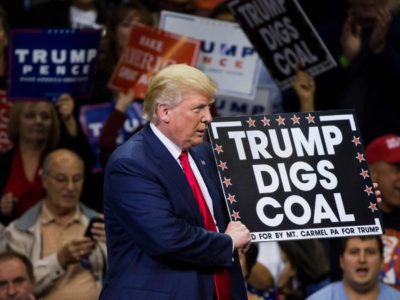The Supreme Court Backs Off on Consumer Protection and (Maybe) the Environment
In a decision issued last week, the U.S. Supreme Court continued to chip away at consumer protections embedded in the Federal Power Act, and it is the environment that ultimately may take the biggest hit.
First, let’s consider those consumer protections. The Federal Power Act requires the Federal Energy Regulatory Commission (FERC) to ensure that rates charged for electric power service are just and reasonable. Traditionally, that meant that rates had to reflect the cost of providing the service, plus a fair return on the investment in physical plant. A power seller would file a rate with FERC. If another party felt the rate was unfair, it could complain about it, and FERC would require the seller to prove that the rate was consistent with costs. As competitive electric generation came into fashion, FERC decided that any deal struck in a reasonably-competitive market would be considered just and reasonable. If the market were doing its job, sellers would be forced to set a rate close to the cost of providing service.
Back in the “filed rate” days, buyers and sellers were always free to cut their own deals, and enter into bilateral contracts at prices that might not match those filed rates. In two 1956 cases (one involving Mobile Gas Service and the other involving Sierra Pacific Power), the Court was asked about whether a power seller could enter into a contract, and then circumvent that deal with a subsequent filed rate. The Court responded by establishing what is now called the Mobile-Sierra Doctrine: in such a situation, the sanctity of the contract must be honored, in the absence of unequivocal public necessity. In 2008 (Morgan Stanley Capital Group v. Public Utility District Number 1 of Snohomish), the question was whether a buyer could back out of a contract signed under duress, during the Western Energy Crisis in 2001, when the contract prices were driven by unlawfully-high market prices. Again, the Court stood behind the contract – precluding buyers from objecting once they have signed the deal, in the absence of serious public harm.
On January 13, 2010, in NRG Power Marketing v. Maine PUC, the Court moved a step further and concluded that not even third parties can step in to object to a contract-derived rate in the absence of serious harm. The Court says that it doesn’t matter who raises an objection — a deal is a deal.
Justice John Paul Stevens, who dissented in Morgan Stanley, dissents here, as well. He says that NRG Power “is the third chapter in a story about how a reasonable principle, extended beyond its foundation, becomes bad law.” It was wise, he argues, to say [as in Mobile-Sierra] that a seller can’t unilaterally sidestep a contract because market conditions change. It was unwise, however, to apply the same rule [as in Morgan Stanley] to a buyer who had been forced by unprecedented market conditions to enter into a contract featuring abnormally high prices. He concludes that it is not sensible, or lawful to take the third step [NRG Power] of applying the same standard to effected parties who were not even part of deal. He argues that the Federal Power Act protects consumers against harm to the public interest – not just “serious” harm. Between the actions of FERC and those of the Court, the Act’s insistence on “just and reasonable” rates has been stripped of much of its meaning.
Should environmentalists care? Probably so. Sellers can charge considerably more than the cost of providing service when they exercise some form of market power. Assuming the absence of collusion or deceit, it is most powerful to make sure that electricity supplies are barely adequate to meet demand. Maintaining an atmosphere of scarcity helps keep prices high. Faced with these conditions, would a seller build new (presumably more efficient, less polluting) power plants, or continue to rely on the existing fleet? Those existing plants include some of the highest sources of carbon dioxide emissions on the planet. Recent history suggests that generation owners would sooner run those older plants to the max than risk losing that perception of scarcity by adding more modern facilities to the mix. The willingness of FERC and the Court to look the other way when rates exceed costs seems to support this behavior.







Reader Comments